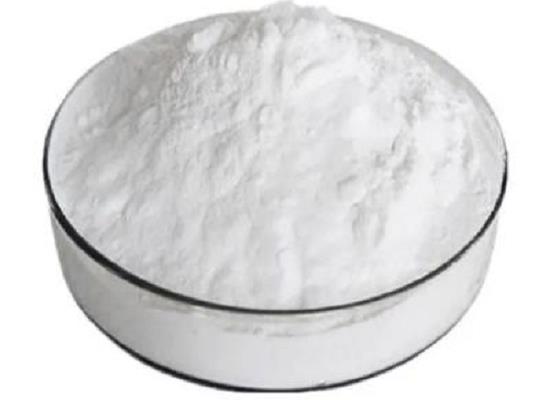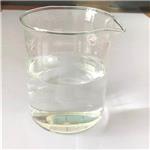LDAO: Versatile Role in Biochemical Innovations and its Health Hazards
General Description
LDAO enhances the efficiency of copper-free click chemistry, significantly accelerating reaction kinetics in the development of conjugate vaccines. Its amphiphilic properties also enable the solubilization of DOPC vesicles, demonstrating its versatile role in membrane dynamics. However, LDAO poses serious health hazards, including toxicity upon inhalation, ingestion, or skin contact, leading to severe respiratory issues and skin irritation. Laboratory studies reveal its potential for causing significant harm, necessitating stringent safety measures during handling. Overall, LDAO's impact on both biochemical innovations and health hazards emphasizes the need for careful application in research and development.

Figure 1. LDAO
Versatile Role in Biochemical Innovations
Introduction to LDAO in Copper-Free Click Chemistry
LDAO plays a pivotal role in enhancing the efficiency of copper-free click chemistry reactions, particularly in the context of conjugate vaccine development. Traditional copper-based click chemistry has been favored due to its rapid reaction rates; however, safety concerns and compatibility issues have led to increased interest in copper-free alternatives. In a recent study, the application of LDAO in a strain-promoted azide-alkyne cycloaddition (SPAAC) reaction was investigated to assess its impact on the conjugation efficiency of a cell-free synthesized variant of CRM197. The presence of LDAO significantly accelerated the reaction kinetics, enabling the production of larger conjugates that maintained comparable immunogenic and stability profiles to those created without LDAO. By incorporating LDAO, researchers have demonstrated its remarkable ability to transform the efficiency of copper-free click chemistry, opening avenues for safer and more effective vaccine development. 1
Mechanism and Benefits in Vesicle Solubilization
LDAO's amphiphilic properties allow it to solubilize large unilamellar 1,2-dioleoylphosphatidylcholine (DOPC) vesicles, providing valuable insights into membrane biophysics. This surfactant's interaction with DOPC has been thoroughly analyzed through turbidimetry and small-angle neutron scattering (SANS). The studies reveal that LDAO enhances the solubilization mechanism of DOPC bilayers through various structural forms, including bilayer fragments and mixed micelles. Notably, the calculated effective molecular packing parameter (delta) indicates a transition from mixed bilayers to tubular micelles. Despite alterations in bilayer thickness induced by LDAO, the phosphohydrolase activity of reconstituted sarcoplasmic reticulum Ca(2+)-ATPase (SERCA) exhibited resilience. This suggests that LDAO's structural influence does not necessarily correlate with a decline in activity, highlighting its versatile role in membrane dynamics. 2
Implications on Reaction Kinetics and Applications
The significance of LDAO extends beyond its role as a reagent in click chemistry; it also demonstrates potential in broader biochemical applications. By improving the kinetics of copper-free click reactions, LDAO allows for the efficient synthesis of conjugates that could enhance the immunogenic potential of vaccines against pathogens like Streptococcus pneumoniae. This is particularly relevant given the rising challenges posed by antibiotic-resistant strains. Furthermore, understanding LDAO's dual role in both solubilization of lipid vesicles and its catalytic function in click chemistry fosters interdisciplinary collaboration between synthetic chemistry, biophysics, and immunology. Overall, the incorporation of LDAO into biochemical processes represents a strategic advancement, potentially leading to innovative therapeutic solutions that can efficiently target various infectious diseases.
Health Hazards
Hazards Summary
LDAO presents significant health hazards, particularly when inhaled, ingested, or absorbed through the skin. This highly toxic substance can be fatal if mishandled, and it is crucial to avoid any skin contact. Inhalation of LDAO may lead to severe respiratory issues, including chemical pneumonitis. Additionally, LDAO can produce irritating, corrosive, and toxic gases when exposed to fire. The runoff from firefighting or dilution efforts may cause environmental contamination due to its corrosive nature. Immediate exposure to LDAO has been shown to cause severe skin irritation and necrosis in laboratory studies. 3
Toxicity
Laboratory studies on LDAO reveal notable toxicity effects. For instance, 30% solutions of LDAO have been found to cause severe skin irritation, including erythema, edema, and necrosis in rabbit models. While lower concentrations such as 1% and 5% show less severe irritation, LDAO's potential to cause harm remains high. In animal testing, acute ocular and dermal exposures resulted in significant irritation, and respiratory rates in mice exposed to aerosolized LDAO demonstrated transient decreases, though not attributed to upper airway irritation. These findings underscore the need for stringent safety measures when handling LDAO. 3
References:
[1] LESLIE BAUTISTA, JEFF FAIRMAN*. Addition of Lauryldimethylamine N-Oxide (LDAO) to a Copper-Free Click Chemistry Reaction Improves the Conjugation Efficiency of a Cell-Free Generated CRM197 Variant to Clinically Important Streptococcus pneumoniae Serotypes[J]. ACS Omega, 2022, 7 39: 34710-35350. DOI:10.1021/acsomega.2c03481.[2] J KARLOVSKá P B F Devínsky. Effect of amphiphilic surfactant LDAO on the solubilization of DOPC vesicles and on the activity of Ca(2+)-ATPase reconstituted in DOPC vesicles.[J]. General physiology and biophysics, 2007, 26 4.
See also
Lastest Price from LDAO manufacturers
US $1.00/KG2025-04-21
- CAS:
- 1643-20-5
- Min. Order:
- 1KG
- Purity:
- 99%
- Supply Ability:
- 10 mt

US $6.00/kg2025-04-21
- CAS:
- 1643-20-5
- Min. Order:
- 1kg
- Purity:
- 99%
- Supply Ability:
- 2000KG/Month


